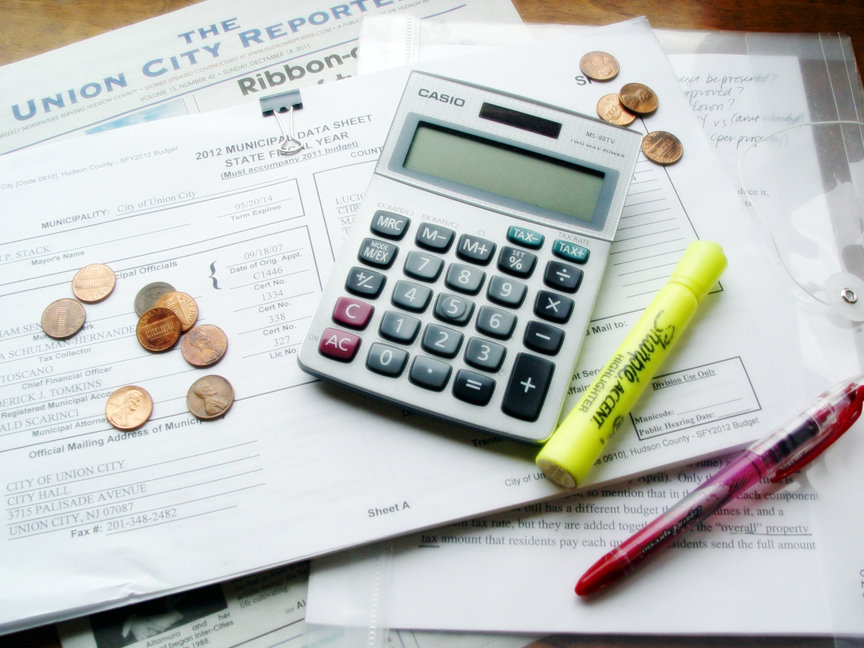The $104.4 million Union City municipal budget introduced in November will be presented for public comments and a final vote on Jan. 17 at 6:30 p.m. at Emerson Middle School. Residents’ tax bills will rise 4.3 percent as a result of this budget.
The 2011-2012 budget covers municipal spending from July 1, 2011 through June 30, 2012. It is up slightly from the previous year’s $103.5 million spending plan.
Residents pay an overall tax rate that results from the budgets of three entities – the city, the schools, and the county. This budget affects only the city portion. With it factored in, the overall tax rate, including all three entities, will rise 4.3 percent from last year’s overall rate. That means that this year, Union City’s taxpayers will pay $61.89 for every $1,000 of property they own. So someone owning a $200,000 house will pay $12,378 over four quarters. Last year, the rate was $59.30 per $1,000 of assessed property, so that same taxpayer would have paid $11,860.
People can comment on the budget on Jan. 17.
____________
Thus, the owner of a $200,000 home will pay a little over $500 more this year than last year.
The city portion of the rate rises to $40.09 per thousand, up from $37.89 last year.
Of the $104.4 million to be raised to run the city for a year, $58.5 million comes from residents’ taxes. Much of the rest comes from state aid. The rest comes from government grants for programs, fees people have to pay in municipal court, and other fees and permits (such as construction fees) paid to the town.
City budgets are often voted on late in the fiscal year as towns wait for state aid information and other deals to go through. Thus, they are often voted on when the fiscal year is already more than half over. The Board of Commissioners can keep voting on temporary appropriations until the budget finally passes.
What’s up and down
Mayor Brian Stack was able to keep taxes from rising further because Gov. Christopher Christie and the state Department of Community Affairs recently awarded Union City $12 million in additional state aid. Some have speculated that this is because of Stack’s support of Christie.
Stack was also able to secure $1.7 million in Regional Efficiency Aid Program (REAP) funding, a grant which reduces resident taxpayer’s property tax bills. The city gets state REAP funds due to its $18 million contribution to the North Hudson Regional Fire and Rescue, which regionalized back in 1999 by combining fire departments from five municipalities. Before the merger with NHRFR, the budget for the Union City Fire Department was less than $6 million.
Stack said the budget increase over last year was due to expenses that are out of the city’s control, including an employee health insurance and pension payment increase of over $1.7 million; the rising cost of electricity, water, and oil; and the costs of clearing the unprecedented amount of snowfall last winter.
He said he and his commissioners have attempted to offset these increases with aid and grants and by reducing the city payroll. The city currently has 356 full-time employees.
Random revenues
As an interesting side note, the city collected around $20,000 in wedding fees. The current fee for a marriage license in New Jersey is $28. The city anticipates collecting around the same in the 2012 part of the fiscal year.
Dog licensing has a projected revenue of $6,858 in this budget.
To attend the public hearing, head to Emerson Middle School at 318 18th St. on Jan. 17.
Gennarose Pope may be reached at gpope@hudsonreporter.com
